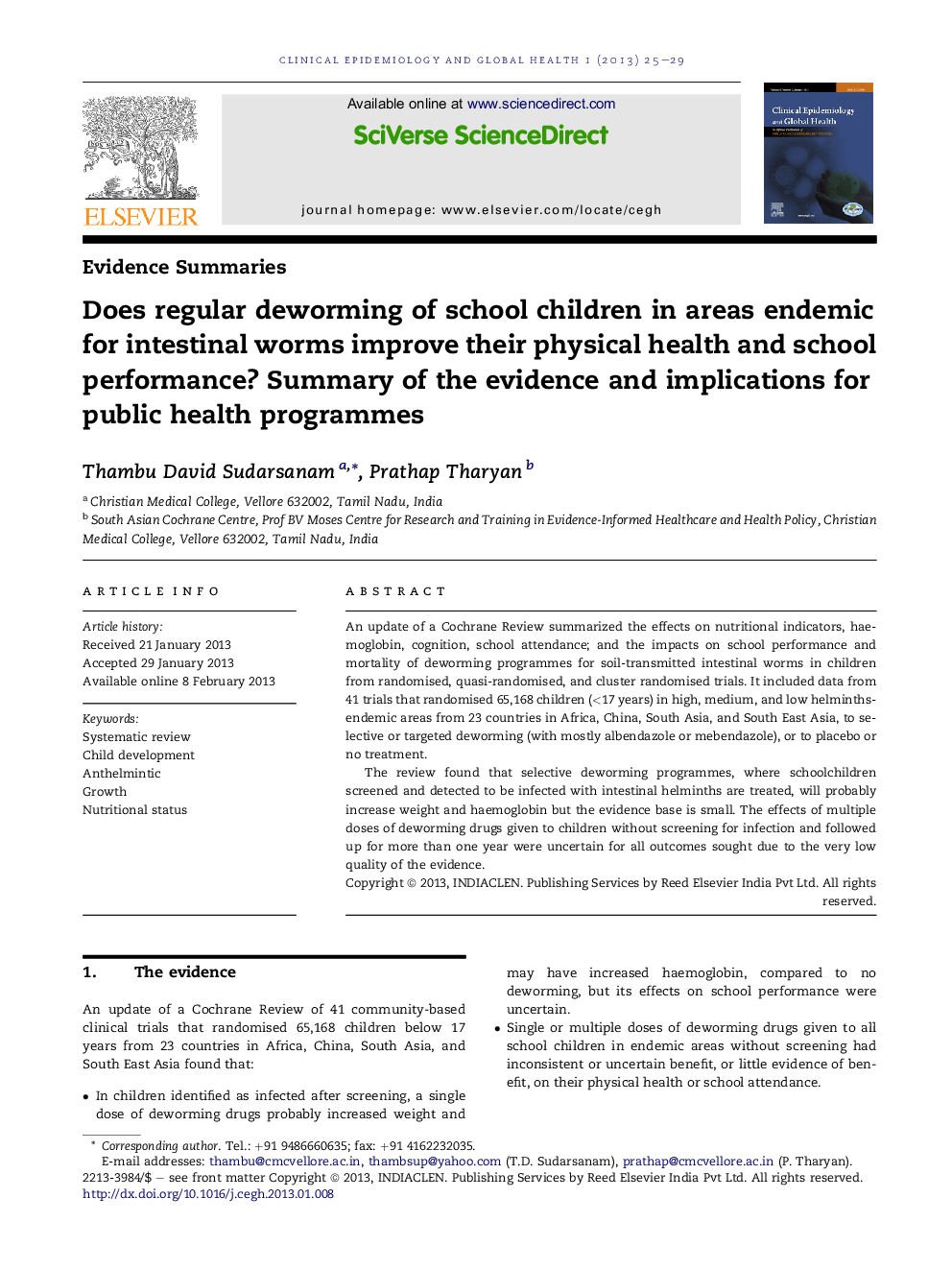| Article ID | Journal | Published Year | Pages | File Type |
|---|---|---|---|---|
| 3396350 | Clinical Epidemiology and Global Health | 2013 | 5 Pages |
An update of a Cochrane Review summarized the effects on nutritional indicators, haemoglobin, cognition, school attendance; and the impacts on school performance and mortality of deworming programmes for soil-transmitted intestinal worms in children from randomised, quasi-randomised, and cluster randomised trials. It included data from 41 trials that randomised 65,168 children (<17 years) in high, medium, and low helminths-endemic areas from 23 countries in Africa, China, South Asia, and South East Asia, to selective or targeted deworming (with mostly albendazole or mebendazole), or to placebo or no treatment.The review found that selective deworming programmes, where schoolchildren screened and detected to be infected with intestinal helminths are treated, will probably increase weight and haemoglobin but the evidence base is small. The effects of multiple doses of deworming drugs given to children without screening for infection and followed up for more than one year were uncertain for all outcomes sought due to the very low quality of the evidence.
